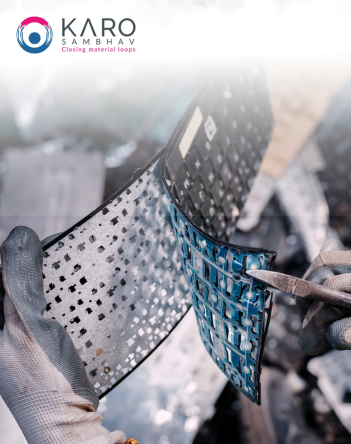you may also be interested in






Spotted: Electronic waste, or “e-waste”, is one of the world’s fastest-growing environmental challenges. In 2019, just 20 per cent of the 54 million tonnes of e-waste generated globally was recycled, while much of the waste produced from discarded electronic devices included substances like heavy metals, plastics and other materials that do not decompose. The Indian startup, Karo Sambhav (meaning “Make it possible” in Hindi), aims to confront this issue head-on.
The company is working to tackle India’s e-waste mountain by bringing together manufacturers, distributors, and recyclers to coordinate their recycling efforts. While India recycles a large proportion of the estimated 3.2 million metric tons of e-waste it generates each year, much of this recycling is unregulated and takes place in unsanitary and dangerous conditions. In response to this, Karo Sambhav works with producers and brands to implement their Extended Producer Responsibility (EPR) programme.
In order to document and track e-waste shipments responsibly through the recycling process, the startup team uses data services provided by Microsoft’s Azure Cloud Services, such as image recognition. The company has also worked hard to build trust with scrap merchants and now collaborates with hundreds of companies and government institutions, as well as thousands of informal sector waste aggregators and repair shops. This has also helped to improve business for collectors and recyclers, who are given assistance to comply with tax registrations and keep on top of paperwork.
Karo Sambhav’s ultimate mission is to build an efficient circular economy for e-waste. The company’s founder, Pranshu Singhal, established Karo Sambhav as a sustainability “movement”, explaining that “the whole ecosystem, right from collection channels to dismantling and recycling companies to organizations that utilize secondary materials for new product creation, has to collaborate. Only then can we solve the problem at scale, because it is not possible to tackle this problem alone.”
As the global e-waste mountain grows ever larger, more companies are starting to take notice. Springwise has recently covered innovations that aim to reduce e-waste, such as appliance rental and a company that is regenerating old batteries to prevent them from being deposited in landfills.





